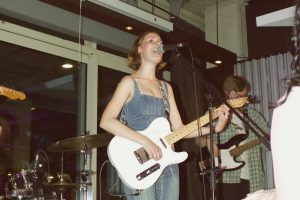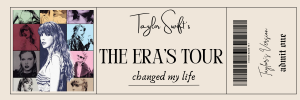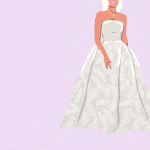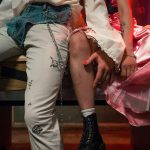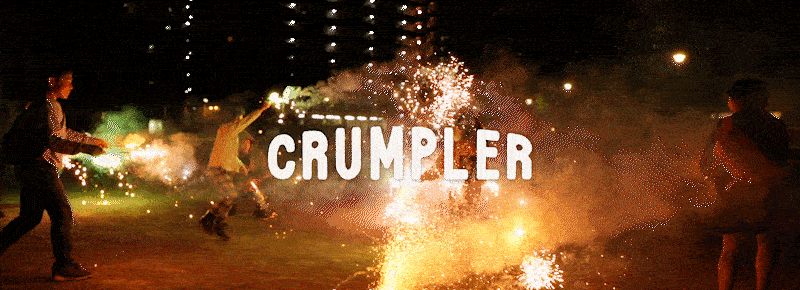Anna Jacobson is a writer and artist from Brisbane. Amnesia Findings (UQP, 2019) is her first full-length poetry collection. In 2018 she won the Thomas Shapcott Poetry Prize and the Queensland Premier’s Young Publishers and Writers Award. Anna’s poetry chapbook The Last Postman (Vagabond Press, 2018) is part of deciBels 3.
I sat down to interview Anna late last year and chat about her stunning debut collection, ongoing community involvement and any plans she has for the near future.
Sean: Congratulations, Anna! It’s so wonderful to see your first poetry collection, Amnesia Findings, alive in the flesh. How do you feel about it finally being out in the world? Have there been any particularly unusual places it’s turned up?
Anna: Thank you so much, Sean! It’s so wonderful to share my work, and to have it in a book I can hold. I feel very grateful and I’m especially excited it’s in libraries now too. I haven’t discovered any unusual places it’s turned up yet, apart from the journeys I take it on! I had fun taking a photo of Amnesia Findings next to the communal mulberry tree, which features in my poem ‘2011’.
There’s a mulberry tree that overhangs
the footpath near the park, with berries
that appear in spring. Too high
for children to reach – the perfect height
for a recovering twenty-something.
S: That’s such a lovely excerpt, thank you for sharing it with us. So, for those who haven’t read the book (yet), how would you personally describe the body of work? I’ve noticed the poems are deeply personal and enriched with family history and often centre around ritual.
A: Yes, my poems in Amnesia Findings focus on themes of family, Jewish culture, food, dreams and mental illness. My mum played an integral part in my recovery. She was my memory keeper when all seemed lost and helped me find my way again. I unknowingly featured her in many of the poems in Amnesia Findings.
S: That really does feature heavily throughout the collection. And it’s absolutely stunning that, as you’ve expressed on your site, you’d been submitting to the Shapcott for seven years before winning last year, of course being shortlisted in 2015. What was the driving motivator for you? What kept you going?
A: Part of my recovery was writing poetry after I experienced an episode of psychosis in 2011. I had always loved writing, but after I became unwell, writing started pouring out of me in the form of poetry. When I became aware there was an opportunity for Queensland poets to enter the Thomas Shapcott Award, and that the prize was the publication of a collection of poetry, I was excited to put something together each year. I saw each year as another chance to make my collection better and the result is Amnesia Findings.
S: It’s a marvellous success story. I’m so interested to hear how the body of the project changed over those several years of hard work. I know the title changed from “Crunchy, No Bruises” in 2015, were the changes dramatic from year to year? Did you start from scratch at all? Or pare back the same ideas and refine until you had it right?
A: Yes, the title and manuscript went through a number of changes! I loved the title ‘Crunchy, No Bruises’, which is named after a poem I wrote (and is something my grandfather said after biting into an apple!). Year to year I kept working on my collection, refining it and taking out poems that weren’t as strong, keeping in the ones that worked well, and adding in new ones. In the end, the title Amnesia Findings represented the collection as a whole and what it had become—I love the paradox of those two words together, and it’s also named after my first poem appearing in the book.
S: Yes, ‘Crunchy, No Bruises’ is one poem I keep coming back to all the time! And for those who don’t know, what’s the editorial process like after you heard you’d won the award? You’d previously had Felicity Plunkett as your mentor under the QUT Emerging Writer’s Mentorship in 2017, was it a pleasure to work closely with her again on developing this book?
A: It was an absolute joy to work with Felicity Plunkett again. As my creative editor she was very generous and asked insightful questions, giving me suggestions to consider. Once this process had finished, the manuscript then went to my in-house editor at UQP, Felicity Dunning. There were first page proofs, second-page proofs and final page proofs. It was very exciting to see my poems formatted on the typeset proof pages. I did get a bit neurotic about double-checking each poem, but once I was able to let the manuscript go for the final time before it went to print, I was very happy with how it looked.
I also got to choose the colour of the cover! I couldn’t work out why I was drawn to orange. It was only later that I realised orange was the first colour I glimpsed after the psychosis in 2011. When I woke up in a white hospital room, I made my way to the shower to wash away the strangeness. A bottle of orange body-wash, with its peach and orange scent, made me feel more human again. It felt right to have orange on the cover—the first colour I saw in the new beginning of my ‘part 2’ self.
S: We know of course you released your chapbook, The Last Postman in 2018 as well, two poems of which were included in AF, how did including snippets of that work come about? Was it difficult to decide on a couple for your wider collection? How do you see them connecting thematically?
A: The two poems I chose from The Last Postman were my favourites from the chapbook and are the more hopeful pieces that appear towards the end of Amnesia Findings. They weave light, which was important to me because I wanted there to be both light and darkness in Amnesia Findings.

S: Your collection deals heavily with mental illness and does so gracefully, often touching on the theme of memory or lost/damaged memories, was it difficult to piece together feelings and experiences that weren’t entirely clear, perhaps touching on fiction? Was it empowering to reclaim parts of yourself in your work?
A: It was empowering. I try to tell myself it’s probably a good thing I don’t remember most of my time in hospital, but the writer and observer in me wants to know what it was like. This loss of agency was very hard to come to terms with. However, I have learned that my experience of ‘not remembering’ is a valid experience and memory in its own right. Ever since 2011 I have kept a diary— I don’t take memory for granted anymore and my poems and writing form a strong role in reclaiming parts of myself.
S: That really comes through in other aspects of your body of work too. It’s so lovely to have seen your short films at the book launch and then find your line drawings all throughout the collection too, which both appear so integral to your collection. When did you know you wanted or needed to include these multimedia pieces too? How important were they to you?
A: I first came to the Queensland Poetry Festival a decade ago as an artist. At the time, I was studying photography at the Queensland College of Art and there was a callout asking for short poetry films for the festival. I put something together each year and loved the whole vibe of QPF. My love of art and writing continually interweaves.
In 2018, I was so lucky to be mentored by poet MTC Cronin. She suggested I include my line drawings with my poems and I loved the idea of combining my two passions. This inspired me to create more drawings to go with the poems, and they ended up in my winning manuscript submission. I was very grateful to my publisher, UQP, for being so supportive about including my drawings.
S: Speaking to so many great local and interstate poets at QPF and in the wake of the festival, general consensus was that the award couldn’t have been won by a lovelier, more deserving person (with which I wholeheartedly agree). Have you had any particularly lovely or memorable moments with poets in the community?
A: I am so lucky to have such a wonderful support network of friends, mentors and poets, who I treasure. It’s a beautiful community I have found myself in. And Sean- yes, one of the most memorable moments was when you came up to me many years ago and said you were a big fan of my work! It was so lovely- my first ever fan! And I was so excited when you were shortlisted this year for the Thomas Shapcott Prize too.
S: Thank you, I’m so glad you remember that! So, what’s next for you? Are you looking to continue with more poetry or maybe delve into more art shows? I remember in 2017, we were lucky enough to be exhibited in the ‘These Frozen Moments’ installation together for The Good Room Collective, anything like that planned ahead? Let us know!
‘I will always write and create. Having my poetry sound-recorded in ‘These Frozen Moments’ installation alongside yours, Sean, was very exciting! In 2019 I was thrilled to be a finalist in the Marie Ellis Prize for Drawing. I also felt honoured to have a photograph selected for ‘Out from the Mist’, an exhibition which explored mental illness in all its forms, including lived experience, relationships, recovery and change.’
Keep up to date with Anna and her work at www.annajacobson.com.au.

